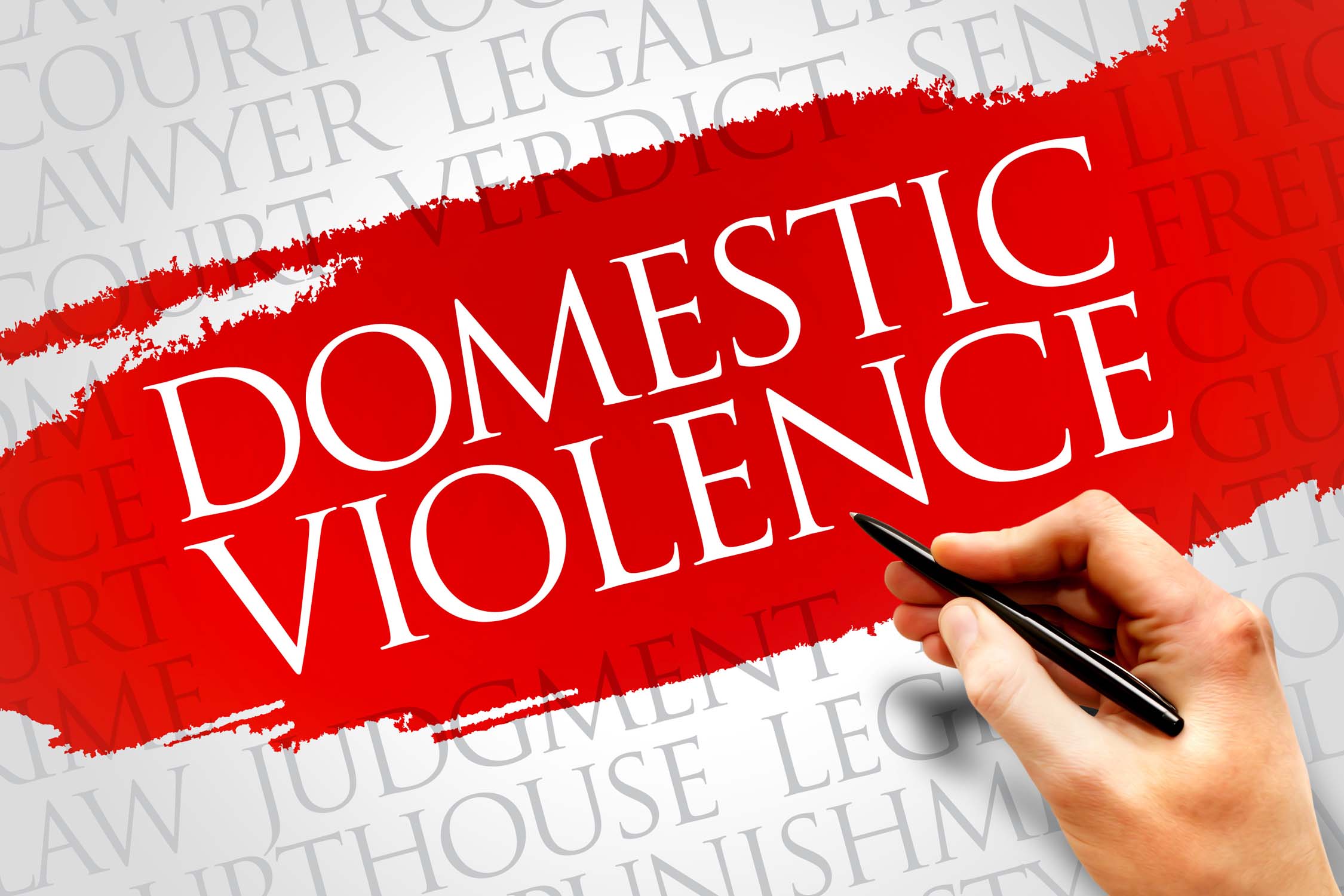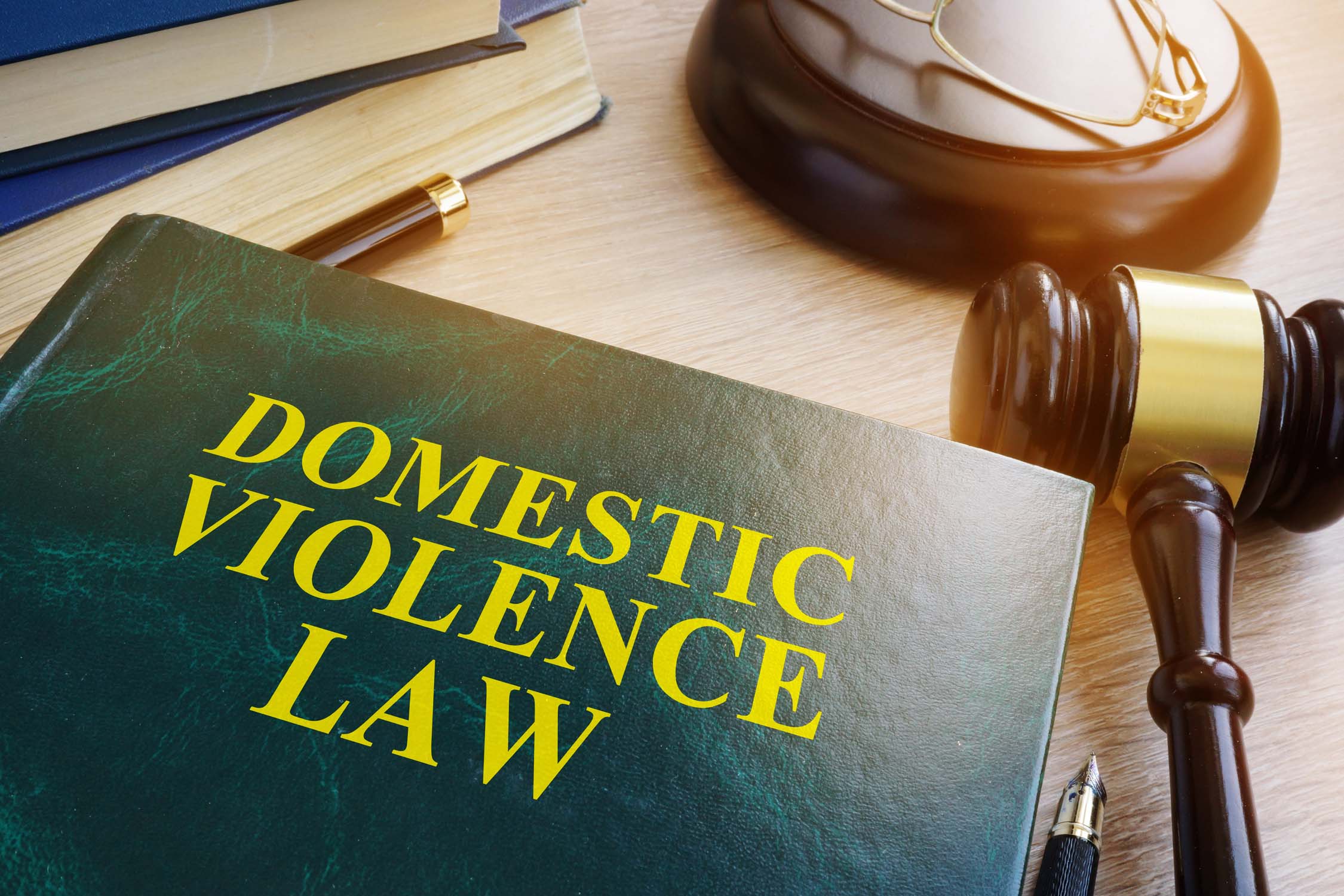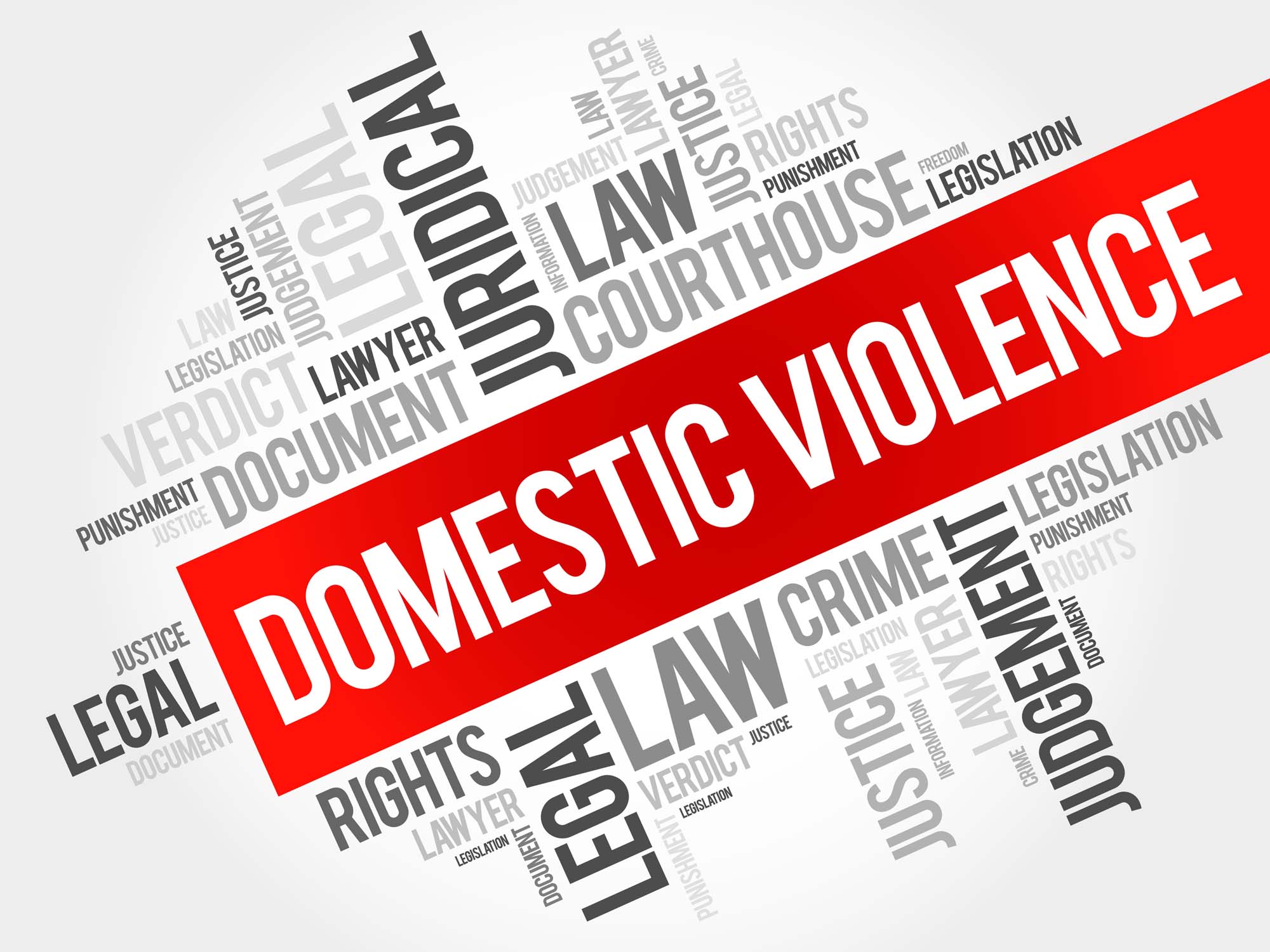Domestic Violence Defense
Sacramento Domestic Violence Defense
Being charged with domestic violence is a serious matter and the tough decisions facing a person charged with domestic violence can be overwhelming. You need an experienced, reputable and well-respected Sacramento domestic violence defense attorney on your side.
Law Office of Richard Dudek has established itself as a leading California domestic violence law firm, having successfully handled numerous domestic violence cases in Sacramento County. We are dedicated to defending your rights and providing you with the highest quality legal representation.
Domestic violence refers to a wide range of conduct, from threats and verbal harassment to the use of physical force. Domestic violence includes all forms of abuse, from screaming and pushing, to emotional and physical abuse. Each year, approximately 1 million women suffer from nonfatal violence perpetrated by an intimate partner. More than 4 million women experience a serious assault by someone they know or love.
Nearly 1 in 3 adult women experience at least one physical assault by a partner during their lives. Domestic abuse does not have to be physical, but can involve economic deprivation, the use of privilege, intimidation, and isolation to maintain a feeling of fear and helplessness in the victim. Domestic violence affects victims indiscriminately, affecting individuals of every age, race, and class.
Examples of conduct that may constitute domestic violence include:
- Verbal abuse
- Physical battery
- Stalking, intimidation
- Sexual assault or abuse
- Threatened or actual physical harm
- Violence against children or family
- Withholding money or basic necessities
- Assault with a weapon or aggravated assault
- Infliction of corporal or psychological injury
Domestic violence causes untold injuries to victims and families across the United States. Being falsely accused of domestic violence also has devastating effects on innocent individuals. In many cases, a partner makes false allegations of domestic violence out of anger, jealousy, or vengeance. Accusers know that domestic violence allegations are serious and can result in the deprivation of parental rights.
Some people use domestic violence as a vehicle to gain the upper hand in divorce or child custody proceedings or just to make life harder for the accused. The alleged incident may even have been an accident, but will forever remain on someone’s criminal until it is expunged. District attorneys can still proceed with prosecuting allegations of domestic violence, even if victims later recant their testimony or refuse to press charges.
California Penal Code Section 273.5
California laws punishing acts domestic violence are set forth in the California Penal Code. Section 273.5 punishes anyone who willfully inflicts corporal injury that results in a traumatic condition upon a spouse, cohabitant, or parent of his or her child. Pursuant to this law, the crime is a felony punishable by imprisonment for two, three, or four years, a fine of up to $6,000, or both. Under this section, a “traumatic condition” includes any internal or external wound or injury, even if it is minor, caused by physical force.
This law also extends domestic violence protection to former spouses and cohabitants, even if the couple was not married. Family Code Section 3044 requires a presumption that awarding custody to a perpetrator of domestic violence is “detrimental” to the child, seriously affecting custody and visitation rights of a parent found to have committed domestic violence.
Contact Sacramento Domestic Violence Lawyer
If you have been charged with domestic violence, the experienced Sacramento domestic violence lawyer at the Law Office of Richard Dudek can help. We have successfully handled all types of domestic violence cases in Sacramento County. Because domestic violence allegations can have serious effects on your immigration status and ability to see your children, it is important to retain a lawyer who can aggressively defend your case. At the Law Office of Richard Dudek , we understand the sensitive nature of domestic violence charges and are dedicated to helping you fight back. Contact us online or by telephone at (916) 444-7595 today to arrange a consultation.
What Makes Us Different?
You deserve an attorney with significant experience to represent your case. Put our 30 years of experience to work for you.
30 Years of Experience
100+ Jury Trials
Criminal Law Specialist
Available 24/7
Free Case Evaluation
CALL OUR FIRM
Domestic Violence Defense Lawyer

Domestic violence refers to abuse committed against those with whom we are related or have an intimate relationship. There are specific categories of persons who are protected under the domestic violence statutes in California. Under Family Code section 6211, a person can be charged with the specific crime of domestic violence if he or she abused any of the following persons:
- A person to whom the alleged offender is or was married to;
- A person with whom the alleged offender regularly lives in the same household or regularly lived with in the same household the past;
- A person with whom the alleged offender is or was in a dating or engagement relationship;
- A person with whom the alleged offender has had a child;
- A person who is a child of the alleged offender;
- A person who is related to the alleged offender within the second degree (this could be the alleged offender’s mother, father, grandparent, sibling, first cousin, niece, or nephew.)
Abuse under the domestic violence laws is set forth in Family Code section 6203 to mean:
- Intentionally or recklessly causing or attempting to cause bodily injury to any of the above listed persons;
- Sexual assault on any of the above listed persons;
- Purposefully putting any of the above listed persons in reasonable fear of serious bodily injury to themselves or to another;
- Violating a protective order that protects any of the above listed persons
Prosecutors aggressively act on domestic violence allegations. Even when the allegations are apparently fabricated, charges are often filed. Prosecutors usually will not dismiss the charges even when the person who made the allegations asks the prosecutor to drop the charges. It is unfortunate but true that sometimes allegations of domestic violence are used to manipulate the system. For example, it is not unheard of in a bitter divorce for one spouse to allege domestic violence against the other so that a restraining order is issued effectively kicking the alleged offender out of the house.
The penalties for the various crimes included under the umbrella of domestic violence vary according to the nature of the crime, the seriousness of any injuries inflicted, and the defendant’s prior record. At minimum, every domestic violence conviction comes with 30 days in jail in most counties. Most judges also require a 52-week domestic batterer’s class for individuals convicted of domestic battery.
Contact Sacramento Domestic Violence Defense Attorney
A conviction for a domestic violence offense can result in substantial penalties, including a lengthy prison sentence in some cases. If you are charged with a domestic violence offense in California, you should consult with a lawyer experienced in handling domestic violence cases. An experienced lawyer will guide you through the process while ensuring that your rights are protected. A lawyer will evaluate strengths and weaknesses in your case and may seek to have charges reduced or dismissed. If your case proceeds to trial, a lawyer will zealously protect your rights while advocating for your acquittal.
Even someone who believes he or she is innocent of the charges must take steps immediately to defend against these charges. The first step anyone facing such charges should take is to call an experienced Sacramento domestic violence defense attorney.
Contact Domestic Violence Defense Attorney in Sacramento
If you are charged or being investigated for domestic violence, contact the discreet and reliable domestic violence attorney in Sacramento at the Law Office of Richard Dudek . You speak personally and at length with our experienced criminal defense attorney. Find out how we can help you counter these serious accusations. Contact us online or by telephone at (916) 444-7595 today to arrange a consultation.
Battery & Domestic Violence

Battery is any willful and unlawful use of force or violence upon the person of another. Where a battery is committed against certain classes of victims, such as peace officers and probation department employees, the law authorizes longer periods of incarceration. Similarly, batteries involving people in the specified domestic violence relationships, noted above, are punished more severely than ordinary battery offenses. (Although the battery statute omits former cohabitants from the list of battery victims that justify increased jail time, the definition of domestic violence includes abuse against former cohabitants.)
When a defendant commits a battery against a person who is not in one of the classes of victims that triggers increased punishment, a conviction carries a maximum of six months in jail and a $2,000 fine. But if the defendant and victim share one of the domestic relationships identified by the battery statute, a conviction for battery carries up to one year in jail and a $2,000 fine. If the defendant is instead sentenced to probation, or the judge suspends imposition of the sentence, the defendant must complete a batterers’ program.
In addition to assessing a fine, a court may require a person convicted of a domestic violence offense to pay a fee that funds domestic violence prevention programs.
(Calif. Penal Code Sections 243, 1463.27)
Contact Sacramento Domestic Violence Defense Attorney
If you are charged or being investigated for domestic violence, contact the discreet and reliable Sacramento domestic violence attorney at the Law Office of Richard Dudek . You speak personally and at length with our experienced criminal defense attorney. Find out how we can help you counter these serious accusations. Contact us online or by telephone at (916) 444-7595 today to arrange a consultation.
Willful Infliction of Bodily Injury

Upon conviction, a defendant may be sentenced up to four years in prison and fined $6,000. If a defendant is sentenced to probation, the court may in lieu of a fine require the defendant to donate money to a battered women’s shelter and reimburse the victim for counseling and other costs that directly result from the offense.
A conviction for willful infliction of corporal injury can be punished by up to 5 years in prison and a $10,000 fine if the defendant has a prior conviction for any of the following offenses within the previous seven years:
- willful infliction of corporal injury
- battery involving serious bodily injury
- sexual battery
- an attempt to injure or disfigure a person with a flammable substance or caustic chemical
- assault with a stun gun, or
- assault with a deadly weapon other than a firearm or by means of force likely to produce great bodily injury.
(Calif. Penal Code Section 273.5)
Contact Sacramento Domestic Violence Lawyer
If you are charged or being investigated for domestic violence, contact the discreet and reliable Sacramento domestic violence lawyer at the Law Office of Richard Dudek . You speak personally and at length with our experienced criminal defense attorney. Find out how we can help you counter these serious accusations. Contact us online or by telephone at (916) 444-7595 today to arrange a consultation.
Protective Orders & Law Enforcement Duties

A court may issue a temporary protective order, without holding a hearing (known as an ex parte order), where a law enforcement officer asserts reasonable grounds to believe that a person is in immediate danger of domestic violence, based on the person’s allegations of recent domestic violence or threats of domestic violence. The order may prohibit the alleged abuser from harming, harassing, or otherwise having contact with the alleged victim, as well as order the alleged abuser to move out of the home. After conducting a hearing involving the alleged aggressor and victim, the court may extend the order up to five years.
(Calif. Family Code Sections 6250, 6320, 6321, 6345)
Where a person is charged with a domestic violence crime, the court must consider issuing a protective order to protect the alleged victim from further violence, harassment, or any other form of contact from the defendant. Where a court has good cause to believe that harm or intimidation of a victim or witness is reasonably likely to occur, a court may issue an order directing a law enforcement agency to provide protection to a victim, witnesses, or the immediate family of a victim or a witness who reside with or live in close proximity to the victim or witness.
At sentencing for conviction of a domestic violence crime, a court may issue an order prohibiting the defendant from having any contact with the victim. The court may make the order effective for up to ten years.
Officers are required to make an arrest when it appears more likely than not that a suspect has violated a domestic violence protective order. If each side has protective orders against the other, the officer must determine who is the dominant aggressor. California law defines the dominant aggressor as the most significant aggressor, which is not necessarily the initial aggressor. In identifying the dominant aggressor, the officer considers several factors, including whether either person acted in self-defense.
Violating a protective order can have serious consequences. As of January 1, 2017, violating a post-conviction restraining order (one issued after the defendant was convicted of specified acts of domestic violence) carries a sentence of incarceration in the county jail for up to one year, a $1,000 fine, or both. A first violation must result in a sentence of 48 hours in the county jail if the violation resulted in physical injury. And a second or subsequent violation occurring within seven years and involving an act of violence, or a credible threat of violence, with imprisonment in the county jail not to exceed one year; or by 16 months, or two, or three years in state prison.
(Calif. Penal Code Sections 136.2, 166, 836)
Contact Domestic Violence Attorney in Sacramento
If you are charged or being investigated for domestic violence, contact the discreet and reliable domestic violence attorney in Sacramento at the Law Office of Richard Dudek . You speak personally and at length with our experienced criminal defense attorney. Find out how we can help you counter these serious accusations. Contact us online or by telephone at (916) 444-7595 today to arrange a consultation.
What is Domestic Violence?

Domestic violence is defined in California Penal Code section 13700 as: “abuse committed against an adult or a minor who is a spouse, former spouse, cohabitant, former cohabitant, or person with whom the suspect has had a child or is having or has had a dating or engagement relationship.”
Two types of domestic violence charges are common in criminal court: “corporal injury to a spouse or cohabitant” (California Penal Code section 273.5) and “domestic battery” (California Penal Code section 243(e)).
- In a “corporal injury” case, any visible physical injury perpetrated on a spouse or cohabitating intimate is charged as a crime. If convicted, the accused can be fined up to $6,000, put on probation, required to participate in diversion programs, and imprisoned for one year in county jail or for four years in a state prison.
- “Domestic Battery” occurs when there is willful and unlawful use of force or violence upon a domestic partner. If convicted, the accused may be subject to fines, participation in a treatment program, and one year in a county jail.
Though arrests for domestic violence typically start with a criminal case, they may have a number of collateral consequences. A civil restraining order case often follows a criminal case if the victim maintains his or her version of events after the police become involved. Family law proceedings, child custody proceedings, and a civil case for damages may also follow.
What Happens After Police Investigate Domestic Violence?
Although there has been an increase in women being reported as aggressors in domestic violence cases, many police officers still tend to assume that the aggressor is a man. The police must read a Miranda admonishment to the person who is arrested, explaining the right to silence. As a consequence, the police report may be one-sided, involve exaggeration, or false statements may be recanted after a period of reflection.
The police report is forwarded to the District Attorney. If the District Attorney has enough information to charge the accused, the charges will not likely be dropped. At this point the District Attorney may continue to pursue the charges even if the person complaining of domestic violence changes his or her account of events. An experienced criminal defense attorney may be able to bring pre-trial and evidentiary motions to limit the alleged proof against the accused, or strike a deal with the prosecutor.
If the District Attorney wins the case, possible punishments the judge may impose include: jail, monetary fines, domestic violence counseling sessions, personal conduct orders, stay away orders, and temporary restraining orders.
Contact Domestic Violence Lawyer in Sacramento
If you are charged or being investigated for domestic violence, contact the discreet and reliable domestic violence lawyer in Sacramento at the Law Office of Richard Dudek . You speak personally and at length with our experienced criminal attorney. Find out how we can help you counter these serious accusations. Contact us online or by telephone at (916) 444-7595 today to arrange a consultation.
What happens in a domestic violence case in California?
In California, domestic violence cases are taken very seriously, and there are specific laws and procedures in place to protect victims and hold perpetrators accountable. Here’s an overview of what typically happens in a domestic violence case in California:
1. Reporting the Incident
The first step usually involves someone reporting the domestic violence incident to law enforcement. This can be the victim, a witness, or even a mandatory reporter like a healthcare professional or teacher.
2. Arrest and Emergency Protective Orders (EPO)
If there is evidence of domestic violence, the police may arrest the alleged perpetrator. In some cases, the police may also request an Emergency Protective Order (EPO) from a judge, providing immediate protection to the victim and other affected parties.
3. Criminal Charges
The prosecutor reviews the evidence and decides whether to file criminal charges. Domestic violence charges can range from misdemeanor to felony offenses, depending on the severity of the incident.
4. Arraignment
The accused is brought before a judge for an arraignment hearing, during which they are informed of the charges against them and asked to enter a plea (guilty, not guilty, or no contest).
5. Protective or Restraining Orders
The victim can request a restraining order, which can include provisions like maintaining a certain distance, no contact, or moving out of a shared residence. Violating these orders can result in further criminal charges.
6. Court Proceedings
If the accused pleads not guilty, a trial date is set. During the trial, both sides present their evidence, and witnesses may be called to testify.
7. Sentencing
If the accused is found guilty, they are sentenced. Sentences can include fines, probation, mandatory counseling, community service, or jail time.
8. Domestic Violence Counseling
Perpetrators might be required to attend domestic violence counseling or anger management classes as part of their sentence.
9. Victim Support
Throughout the process, victims are provided with support services, which may include counseling, shelter, legal assistance, and resources to help them recover and stay safe.
10. Appeals and Post-Conviction Relief
The accused has the right to appeal the conviction. There are also legal processes available for post-conviction relief, depending on the circumstances of the case.
Contact Domestic Violence Attorney in Sacramento
If you are charged or being investigated for domestic violence, contact the discreet and reliable domestic violence attorney in Sacramento at the Law Office of Richard Dudek . You speak personally and at length with our experienced criminal defense attorney. Find out how we can help you counter these serious accusations. Contact us online or by telephone at (916) 444-7595 today to arrange a consultation.
